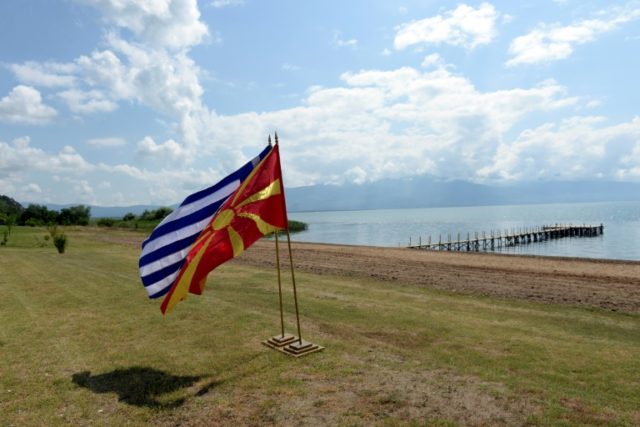The deal the Greek and Macedonian prime ministers struck to end the 30-year argument over what the Macedonian republic should be called is making little progress through the Greek government.
On Tuesday, an influential member of the governing political coalition announced he was ready to bring the entire government down if the name deal moves forward.
The agreement Greek Prime Minister Alexis Tsipras and Macedonian Prime Minister Zoran Zaev reached would officially christen Zaev’s country as “the Republic of North Macedonia.” Ever since it emerged from the disintegrating Yugoslav federation in the Nineties, it has been known informally as “the Former Yugoslav Republic of Macedonia” and referred to with the awkward acronym FYROM.
The problem in Greece is a pronounced aversion to allowing Zaev’s country to use the word “Macedonia” in its name. This is partly a matter of national pride over the storied birthplace of Alexander the Great, and partly due to fears that the former Yugoslav republic might someday press territorial claims against the parts of Greece known as Macedonia.
Over in FYROM, parliament ratified the agreement over the objections of President Gjorge Ivanov, who denounced the deal as a “criminal” violation of the national constitution. Ivanov and his supporters dislike the concession of adding the word “North” to the Republic of Macedonia’s name because it challenges the idea of which country is the “real” Macedonia and makes the North Macedonians appear subordinate to Greece.
Ivanov has vowed to block the name deal, but apparently lacks the legal power to do so if parliament insists – and it will, because the deal was ratified by a unanimous vote, with the nationalist opposition abstaining. Zaev has threatened to resign if the agreement does not go through.
The prospects for passage look a good deal worse in Greece, where fiery nationalist Defense Minister Panos Kammenos – last heard threatening to “crush” Turkey if it dares to make a move on disputed Aegean islands – said on Tuesday that he will not allow the North Macedonia name change to move forward until Greek voters explicitly approve it, either by referendum or a new general election.
Kammenos, who is also the head of the Independent Greeks party, expressed personal opposition to the name change on Tuesday. “The deal for me is bad. I do not accept the deal, and I will try to block it,” he said.
“I want to clearly state – and I take the responsibility as president of the Independent Greeks which is a party in the government – that this agreement will not come for ratification without the opinion of the Greek people,” he declared.
“There can be no procedures with NATO if the referendum is not completed in FYROM and if the deal does not pass through the Greek Parliament,” Kammenos added.
He has stated in the past that if FYROM is allowed to join NATO under any version of the name “Macedonia,” it would be an insult to “Greek civilization” delivered by the entire Western world.
Kammenos added that he would be willing to accept a supermajority vote in the Greek parliament in lieu of a referendum or new elections, but he knows perfectly well that both the opposition parties and his own Independent Greeks would not vote in favor, and Tsipras’ Syriza party does not hold enough seats to manage anything better than the simple majority vote normally required under Greek law.
The Greek defense minister showed he was not impressed by Macedonian support for the agreement by saying, “The expectations that Zaev is trying to cultivate in his country are his own business. Someone’s wishes are separate from a country’s foreign policy and from existing documents.”
Kammenos previously signaled that he was not willing to pull the nine parliamentary votes of his Independent Greeks party out of the governing coalition over the name deal, but now he seems at least tacitly willing to do so.
The Tsipras government survived a no-confidence vote over the name deal in June, but only by a vote of 153-127, and lost a member of its parliamentary coalition who was kicked out of the Independent Greeks party for voting in favor. Kammenos said at the time that voting against the no-confidence motion was not equivalent to voting in favor of the Macedonia name deal.

COMMENTS
Please let us know if you're having issues with commenting.